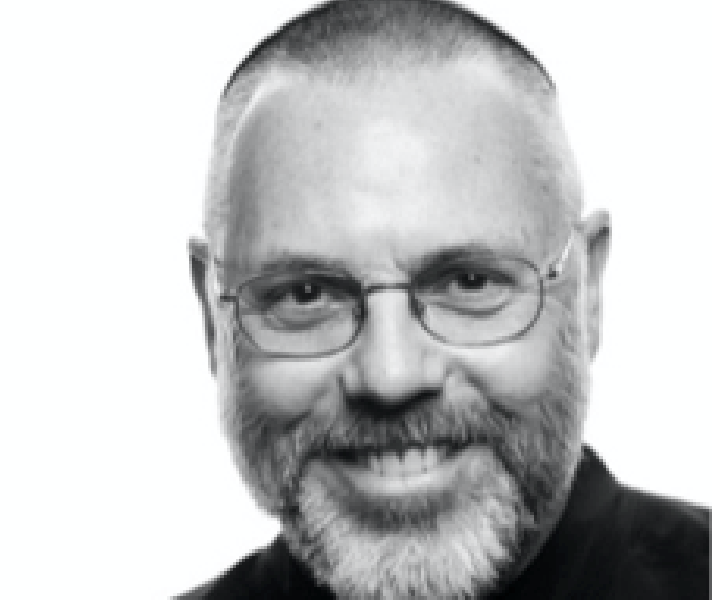Jewish Community Relations Council (JCRC)

JCRC Presents “The Glorious, Wondrous, and Oh So Dangerous Work of Authentic Interfaith Conversation”
Recognizing the need for authentic interfaith dialogue, the Jewish Community Relations Council (JCRC), part of the the Jewish Federation of Cincinnati, in partnership with host location, First United Church of Christ in College Hill, will present a community-wide conversation with Rabbi Rami Shapiro, at 6:30 p.m., Monday, February 22.
Titled “The Glorious, Wondrous, and Oh So Dangerous Work of Authentic Interfaith Conversation,” the presentation is co-sponsored by the Bruggeman Center for Dialogue at Xavier University, the Metropolitan Area Religious Coalition of Cincinnati (MARCC), and the Islamic Community Center of Cincinnati. The event is free and open to the public.
“This is a particularly polarizing time in US and global politics,” said Sarah Weiss, director of the JCRC. “It is during times like these that we must be advocates of mutual respect and understanding, which results from coming to know one another’s concerns, values, and stories. Rabbi Shapiro is the perfect person to challenge us all.”
According to Rabbi Shapiro, “The possibility that you could be changed— not converted, but transformed—by what one hears from another, is what is so very essential to the interfaith enterprise. It is also what makes it so dangerous.”
Reverend Dan Weyand-Geise of First United Church of Christ in College Hill issued a call to Cincinnati’s religious leaders, as well as congregants, to “come out of our denominational and congregational igloos and realize there is great beauty, wisdom, and charity among our wonderfully diverse religious community here in Cincinnati.”
Dr. Gordon Peerlman, author of Christianity and Buddhism, comments, “Rabbi Rami is Jon Stewart’s spiritual double: hilarious and insightful, who wickedly exposes the religious insanities of our time while movingly offering an authentic inter-spirituality that is timeless.”
Rabbi Rami Shapiro is widely recognized as one of the most creative figures in contemporary American Judaism. An author of over 30 books, he is an award-winning poet, liturgist, and essayist; his prayers are included in worship services across the denominational spectrum of American congregations. A graduate of the Hebrew Union College-Jewish Institute of Religion, he also holds a Ph.D. in Religious Studies from Union Graduate School. He is an initiate of the Ramakrishna Order of Vedanta Hinduism.
Rabbi Rami can be found at rabbirami.com. He writes a regular column for Spirituality and Health magazine called “Roadside Assistance for the Spiritual Traveler,” and hosts the weekly Internet radio show, How to be a Holy Rascal on Unity Online Radio. His newest book is Perennial Wisdom for the Spiritually Independent.
The event is free and open to the public. RSVPs are not required. It will be held at 6:30 PM, Monday, February 22, 2016, at the First United Church of Christ, 5808 Glenview Ave., Cincinnati.MORE:
“The Only Block to Authentic Dialogue is Fear:” Interview with Rabbi Rami
 Debra Pinger: Do you think this is a particularly pressing time to talk about interfaith conversations?
Debra Pinger: Do you think this is a particularly pressing time to talk about interfaith conversations?
Rabbi Rami Shapiro: We are living at a moment when the world’s religions find themselves at a crossroads. One path leads beyond the limits of “us” and “them;” the other leads to the endless war of “us” against “them.” One path leads beyond the madness of zero-sum religion and its obsession with chosen and not chosen, saved and damned, believer and infidel toward a non-zero religiosity that reveals the divinity of all beings; one leads deeper into the madness and the demonization of “the other” upon which it thrives, the other, employing authentic interfaith conversation, has the potential to move us along the non-zero path.
You’ve traveled the world challenging people of a variety of faiths to be vulnerable in their conversations. Have you seen countries, faith communities, or other examples of people who are particularly interested in this issue?
Absolutely! But, these are often individuals or small groups within and without organized religious institutions. No country or religion is more inclined to move beyond zero sum thinking than another. But there are people— people I call spiritually independent, boundary crossers, and holy rascals— that are so inclined.
What are the biggest challenges to authentic dialogue?
The only block to authentic dialogue is fear: the fear of change, the fear of losing one’s identity, the fear of losing one’s faith by questioning one’s beliefs, the fear that “the other” could be as right as you, or worse, that both of you could be wrong. That is why authentic dialogue must be done in a setting rooted in deep compassion and respect among the participants. You just can’t convene an interfaith gathering; you have to cultivate one.

